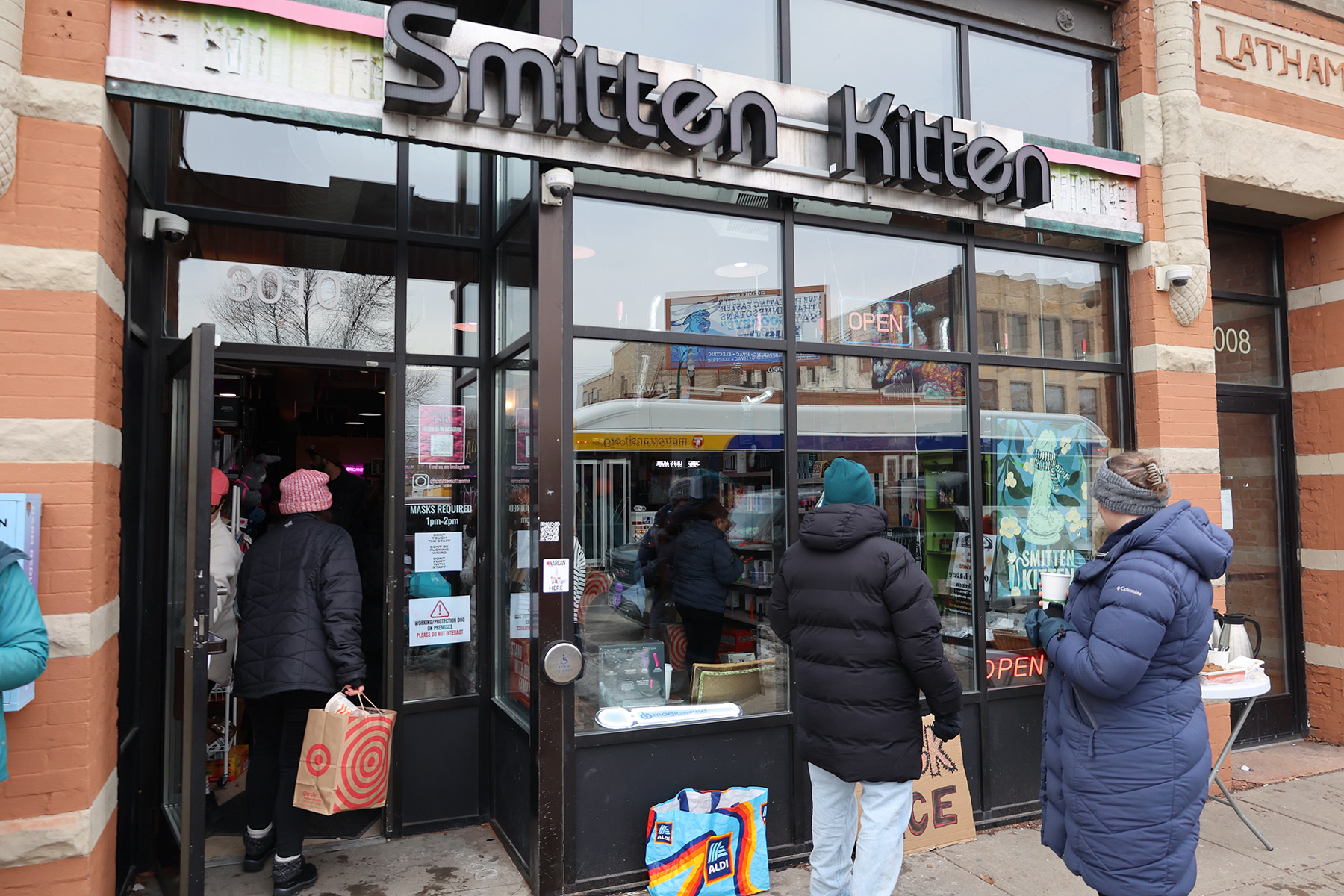It’s 6:15 on a glorious spring evening. Goldfinches hang on the feeders like bits of fluttering sunshine, lilacs are heavy with their liquid scent, and the bridal wreath is starting to pop tiny white blossoms down the stems like the tail of a comet. What a nice night to sit on the porch, clear my head of the day’s clutter and sip a glass of a crisp whatever happens to be on hand.
It’s perfection. That moment in Minnesota when we get it right.
And then it starts. The wailing shriek of the leaf blowers on neighboring yards and sidewalks, the clouds of brown dust billowing up like swarms of gnats.
We are decent people who look out for each other. Why do we go on allowing this assault on our senses? Not to mention the assault on the environment?
There are huge problems in the world and some big ones right here in River City, so writing about this small thing may seem like the epitome of privilege.
But is it a small thing?
Gas-powered leaf blowers can emit more than 100 decibels of noise. Anything over 80 decibels for a prolonged time permanently damages cells in the inner ear. This is especially true for the lawn-maintenance crews who blast them at close range from dawn to dusk. My discomfort is temporary, but the damage to their hearing is permanent.
But even worse is the damage to the planet. USA Today recently ran this headline: “Gas leaf blowers and lawn mowers are shockingly bad for the planet. Bans are beginning to spread.”
The article goes on to say that using a commercial gas-powered leaf blower for an hour produces emissions equal to driving from Denver to Los Angeles.
According to James Fallows, writing in The Atlantic in April 2019: “The fault lies in the two-stroke engine, which sloshes together a mixture of gasoline and oil in the combustion chamber and then spews out as much as one-third of that fuel as an unburned aerosol. If you’ve seen a tuk tuk, one of the noisy tricycle-style taxis in places such as Bangkok and Jakarta, with purple smoke wafting out of its tailpipe, you’ve seen a two-stroke engine in action.”
Fallows notes that tuk-tuks in those countries are being banned for this very reason.
So far in this country, gas-powered leaf blowers have been banned in some states and in over 100 cities.
What about Minneapolis? For now, the city has chosen the carrot over the stick in the form of rebate programs to commercial landscaping businesses.
According to Zach Schultz, policy aide to Council Member Lisa Goodman, the Green Cost Share Program offers up to a 45% match and up to $100,000 to help local businesses fund projects that save energy, reduce air pollution and cut CO2 emissions. In the case of lawn care companies, businesses that are granted funds to transition to electric lawn equipment must turn in their gas-powered equipment so that it is not resold and used in other locations.
The Minnesota Pollution Control Agency (MPCA) has offered a bigger carrot, helping commercial landscapers cover nearly 90% of the cost of purchasing electric-powered lawn tools.
City Council Member Goodman says she prefers incentive programs because there is no point in introducing an ordinance that can’t be enforced. “We do not have the staff to police the city. I cannot imagine that we have people available to be chasing down individuals who are using gas powered leaf blowers.”
She has a point. If our already strapped police force has to decide between arresting the carjacker or the leaf-blower, I think most of us know which we’d choose.
But we pass many regulations that aren’t routinely enforced. They simply give the city the legal chops to crack down on those who consistently create a nuisance or a danger for others. No one’s been taken off in cuffs for burning their garbage, but a citation and a fine can be issued if someone burns paint cans and old tires, as a former neighbor of ours did until the city put a stop to it. Those citations are handled by city inspection workers, not the MPD, although Goodman’s office points out that there are not enough workers to enforce even existing noise ordinances.
There is resistance from the commercial lawn services who argue that the gas-powered blowers are more powerful and that they need equipment that can run all day without recharging.
One Hill & Lake Press neighbor arranged for his lawn company to meet with the city’s sustainability staff to learn more about the rebates. He said the meeting was cordial, but in the end they were unwilling to make the switch.
On the other hand, Phillips Garden, a Minneapolis-based landscaping company, took advantage of the MPCA rebate and switched to battery-powered tools. The yard crews say the latest iteration of e-powered tools have nearly the same power as the gas-powered ones, and that they do not miss the noise or dealing with smelly gas cans.
So perhaps we need both. Incentivize the willing and penalize the reluctant. Gas-powered blowers and mowers are eventually going to go the way of the tuk tuk. Given the catastrophic damage they do to our hearing, our air and our critters, there is no excuse for not using every carrot and stick we can to make that happen now.
Things you can do.
Get over lawn lust and the desire for a spotless yard. It does not need a full Brazilian. Much of what has fallen decomposes back into the soil. If, like me, you crave tidiness, try to tread lightly. Rediscover the rake or invest in a quiet e-blower that does minimal damage.
If you are fortunate to have a lawn service, encourage them to contact the City Sustainability Department to learn more about the Green Cost Share Program by calling 612-673-2301.






